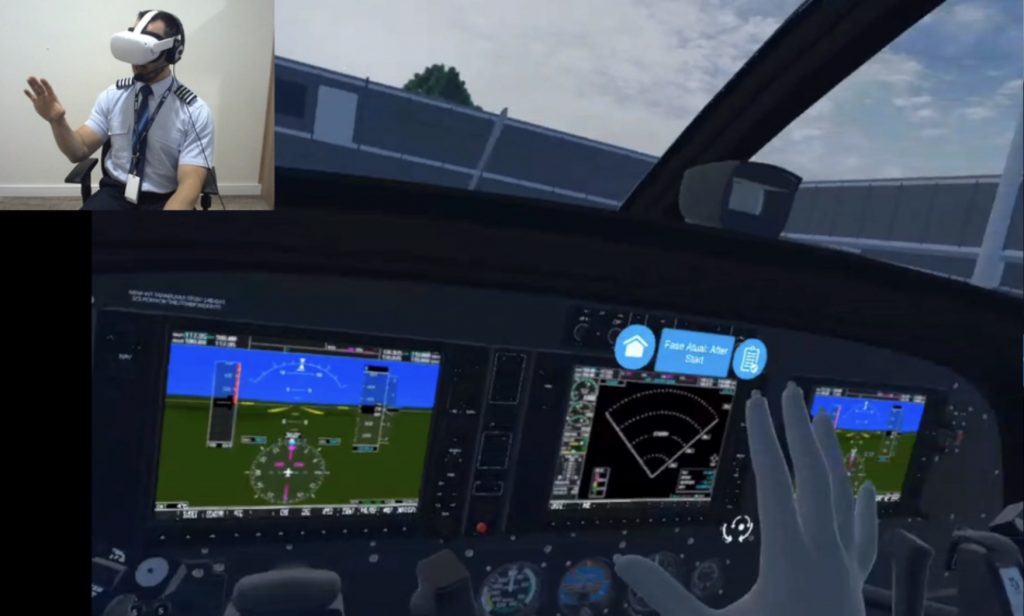
Pilots flying for the regional operator Azul Conecta of the Brazilian carrier Azul Brazilian Airlines have started using virtual reality headsets to improve their training.
The Azul Conecta fleet is composed exclusively of Cessna Grand Caravan aircraft, which is known for its ruggedness and flexibility, allowing it to operate in the world’s most demanding environments.
The virtual reality training program has been created in partnership with Plan XP, a Brazilian company that specializes in using innovative technologies like virtual reality to help organizations innovate their processes.
The main purpose of the program is to give pilots the theoretical knowledge they need to use real flight simulators. A completely realistic virtual reality version of the cockpit of the Cessna Grand Caravan aircraft is helping them acquire the necessary knowledge.
“With the use of virtual reality goggles, which precede the simulator stage, the training is focused on the entire operational routine of a flight, from take-off to landing,” explained Tadeu Primo, simulator instructor and commander of Azul Conecta.
“When the crew member moves forward into the simulator stage, he will already be able and familiar with all the commands and sequences of a Cessna Grand Caravan cabin,” he added.
Azul isn’t the only airline that uses virtual reality to train its pilots. Many other airlines around the world are experimenting with the technology as well.
Last year, the European Union Aviation Safety Agency (EASA) granted the first certificate for a VR-based Flight Simulation Training Device (FSTD).
“This is a significant milestone in the evolution of Flight Simulation Training Devices,” said Jesper Rasmussen, EASA Flight Standards Director. “The Agency is pursuing the modernization of its regulation for training devices to reflect their actual capability and technology advancement.”
As VR headsets become more powerful and immersive, we can expect more and more training to take place in virtual reality. The aviation industry is a great fit because of its high-stakes nature, and the same can be said about industries such as healthcare, law enforcement, and space, among others.
